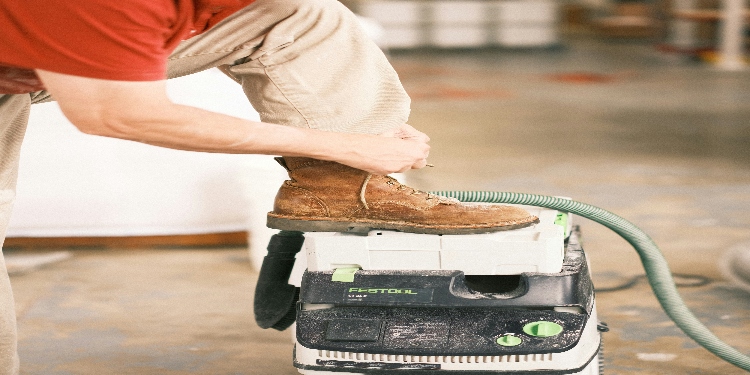Q: I keep hearing the terms “standard clean,” “deep clean,” and “commercial clean.” What’s the difference?
Great question—and one that comes up often. A standard clean is your routine maintenance. Think of it as the regular upkeep that keeps your home or workspace looking tidy: dusting, vacuuming, mopping, and wiping surfaces. It’s ideal for keeping things presentable between more intensive cleanings.
A deep clean, on the other hand, is much more detailed. It tackles those areas that aren’t usually addressed during a standard session—like baseboards, air vents, behind appliances, and inside cabinets. It’s the kind of reset your space needs every few months or after a major life event.
Then there’s the commercial clean, which applies to offices, retail spaces, and public facilities. It focuses on shared spaces, high-traffic zones, and sanitization—often scheduled on a recurring basis to maintain professional standards of cleanliness.
Q: How do I know which type of clean I need right now?
It really depends on your space and circumstances. If your home or office hasn’t been cleaned in over a month, or if there’s noticeable buildup in the kitchen or bathrooms, a deep clean is a great place to start. Once that’s done, a standard clean every week or two can maintain the results.
For businesses, the baseline is different. A commercial clean is essential for keeping shared environments safe and welcoming. Frequency may vary depending on traffic, but most offices benefit from at least weekly cleanings.
Q: Can a deep clean actually impact my health? Or is that just marketing talk?
No gimmicks here—a deep clean can definitely support better health. Dust mites, mold spores, pollen, and pet dander accumulate over time, especially in overlooked areas. These allergens affect air quality and can trigger respiratory issues or skin irritation.
Deep cleaning removes built-up grime and bacteria from often-forgotten areas like window sills, ceiling fans, grout lines, and more. This is particularly beneficial for those with asthma, allergies, or weakened immune systems. Cleanliness and health are more connected than people realize.
Q: How does cleaning differ in a commercial setting compared to a home?
While the fundamentals are similar—remove dirt, sanitize surfaces, and restore freshness—the scale and focus differ. In a home, attention centers on comfort and livability. In a commercial space, the focus shifts to safety, hygiene, and first impressions.
For example, in a retail store or office, high-touch areas like door handles, countertops, and elevator buttons must be cleaned more frequently. Break rooms, restrooms, and shared desks also demand more frequent attention. This makes commercial cleans more strategic in their scheduling and scope.
Q: I’ve done my own cleaning for years. Why consider professionals now?
Doing your own cleaning works well for many people—but professional cleaning is about depth, consistency, and time efficiency. Teams like those at Queen City Cleaners bring trained staff, industrial-grade products, and a systemized approach to every job.
More importantly, hiring professionals frees up your time. For busy homeowners or business managers, outsourcing cleaning ensures quality without the mental and physical load. Plus, professionals spot things others might overlook—like water stains forming under the sink or mildew creeping up a bathroom wall.
Q: What should I do before a cleaning crew arrives?
Not much—but a little prep goes a long way. Start by tidying up personal items like clothes, papers, or toys. That allows cleaners to access all surfaces without obstacles. If you’re booking a deep clean or a commercial clean, it’s helpful to communicate any problem areas you’d like prioritized.
You don’t need to clean before the cleaners arrive (that defeats the purpose!), but decluttering allows them to focus on what really matters: sanitizing, scrubbing, and restoring your space.
Q: How often should I schedule a standard clean versus a deep clean?
Think of it like dental care. Your standard clean is brushing and flossing daily—routine, essential, and preventative. A deep clean is like a professional cleaning at the dentist—thorough, detailed, and necessary a few times a year.
For most homes, a biweekly or monthly standard clean works well. Deep cleaning is often needed quarterly or seasonally, especially before hosting guests, during allergy season, or after renovations.
Businesses, depending on foot traffic, should consider daily or weekly commercial cleans to maintain a professional environment. Deep cleaning commercial spaces might occur quarterly or as needed for compliance and presentation.
Q: Is there such a thing as cleaning too much?
Over-cleaning can happen, especially when using harsh chemicals or scrubbing delicate surfaces too frequently. That’s why trained professionals follow product guidelines and know how to clean without damaging materials.
A well-structured cleaning routine maintains balance. For example, floors may need daily sweeping but only monthly polishing. Surfaces should be sanitized regularly, but deep disinfecting may only be required during flu season or after an illness. Moderation, paired with expertise, prevents over-cleaning.
Q: How can I make the results last longer between cleanings?
A few small habits go a long way. Remove shoes indoors to reduce dirt tracking. Use mats and runners in high-traffic areas. Wipe down surfaces after use. Declutter frequently to make future cleaning easier.
You can also establish a “maintenance zone” mindset: for example, make the kitchen sink spotless before bed or give the bathroom a five-minute wipe each morning. These small habits keep your space in top shape between professional cleanings.
Q: What’s the number one thing people forget to clean?
Ceiling fans, for sure. Also: inside trash cans, under rugs, the tops of cabinets, remote controls, and door frames. These areas often escape attention during a standard clean—but deep cleans are designed to catch them.
In a business setting, keyboards, office chair handles, and break room appliances are frequently overlooked. That’s why periodic commercial cleans are so important—no corner is too small to matter.
Q: Final thoughts?
Cleaning is more than just aesthetics—it’s about function, health, and mental clarity. Whether you’re managing a home, preparing for guests, or running a workplace, keeping your environment clean enhances every aspect of your day.
And while it’s possible to handle the basics yourself, there’s a distinct difference when professionals step in. From standard clean to deep clean to commercial cleans, the results speak for themselves.









































































